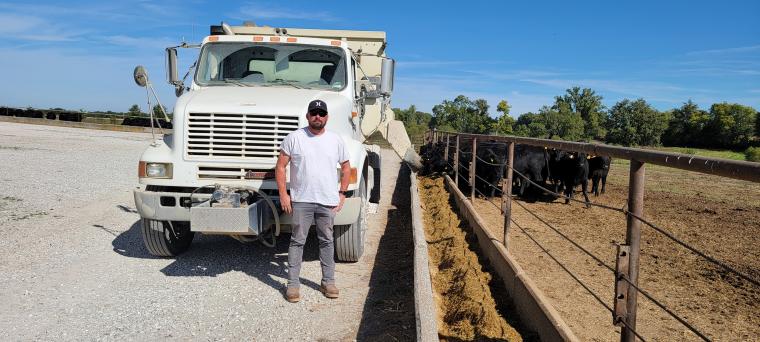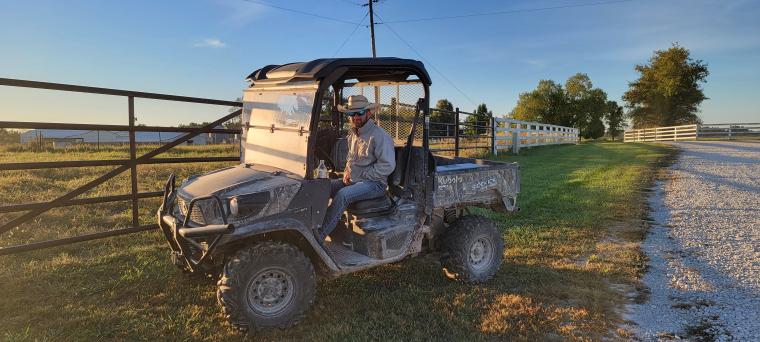PARIS, Mo. – Today’s tight labor market makes it harder for farm employers to compete for workers, says Ryan Milhollin, University of Missouri Extension agricultural economist.
Farm laborers work long hours, sometimes in inclement weather. Workers may need diverse skills to fill roles such as truck driver, mechanic, nutritionist, forage specialist, veterinarian, babysitter and weather forecaster. For this demanding work, farmworkers often receive pay and benefits below those offered in other industries.
To help farms attract and retain workers in this environment, Milhollin recommends considering nonmonetary compensation.
“Farm employers can use nonmonetary compensation to tap into what makes working on a farm unique and provide an inexpensive yet meaningful benefit to farm employment,” says Milhollin, an author of MU Extension’s Missouri Farm Labor Guide.
Benefits could include free housing, hunting privileges on farmer-owned land and continuing education opportunities. Milhollin says the key is getting to know your employees and what they enjoy. Choosing benefits you know the farm team will value will have a greater impact on retaining team members.
Lynn Fodge, of Hopewell Farms in Monroe County, says she, her husband and their two sons and their spouses try to show their deep appreciation for their two farm employees, Trevor Cockrell and Dakota Beckfield. The Fodges farm about 5,000 acres of row crops and pasture and have 550 head of fall- and spring-calving Angus cows.
The Fodges communicate their appreciation by thanking the workers for their many efforts, giving bonuses when sales are good and offering meat and other products of the farm. They also provide some insurance benefits and a retirement plan.
Other perks include being able to borrow farm equipment, trucks and tools for personal use. The farm allows flexibility in work hours to accommodate family time, school schedules and community events.
Hopewell Farms’ two employees came to them by chance meeting and word of mouth. Neither had extensive agricultural backgrounds, so the Fodges trained them. Cockrell has worked on the farm for 12 years, and Beckfield joined the team eight months ago.
“We know there is too much work for the family without them,” says Lynn Fodge. “We depend on them, and we are grateful for them.”
Farmhands once were a fixture of farmsteads. Now, like farmers, they are a vanishing breed, she says. Fewer young people want to return to the farm, and there are financial obstacles to entering the industry.
Wages for farmworkers are rising at a slower pace than nonfarm wages, according to the USDA Economic Research Service. In 2020, the average farm wage was $14.62 per hour, just 59% of the nonfarm wage ($24.68). And the hired farm workforce is aging — another obstacle for those seeking employees.
For more information on how to attract and retain farmworkers, download the free “Missouri Farm Labor Guide” at extension.missouri.edu/publications/m199.
Photos
Trevor Cockrell
Trevor Cockrell, a 12-year employee of Hopewell Farms in Monroe County, feeds cattle as part of his work to keep the beef and grain operation running smoothly. The owners, the Fodge family, rely on their employees to keep the 5,000-acre operation going. Photo courtesy of Lynn Fodge.
Dakota Beckfield
Dakota Beckfield works at Hopewell Farms in Monroe County. The farm relies on family members and two employees to run the farm. In a tight labor market, farmers can use nonmonetary compensation to attract and retain workers, says University of Missouri Extension specialist Ryan Milhollin. Photo courtesy of Lynn Fodge.

